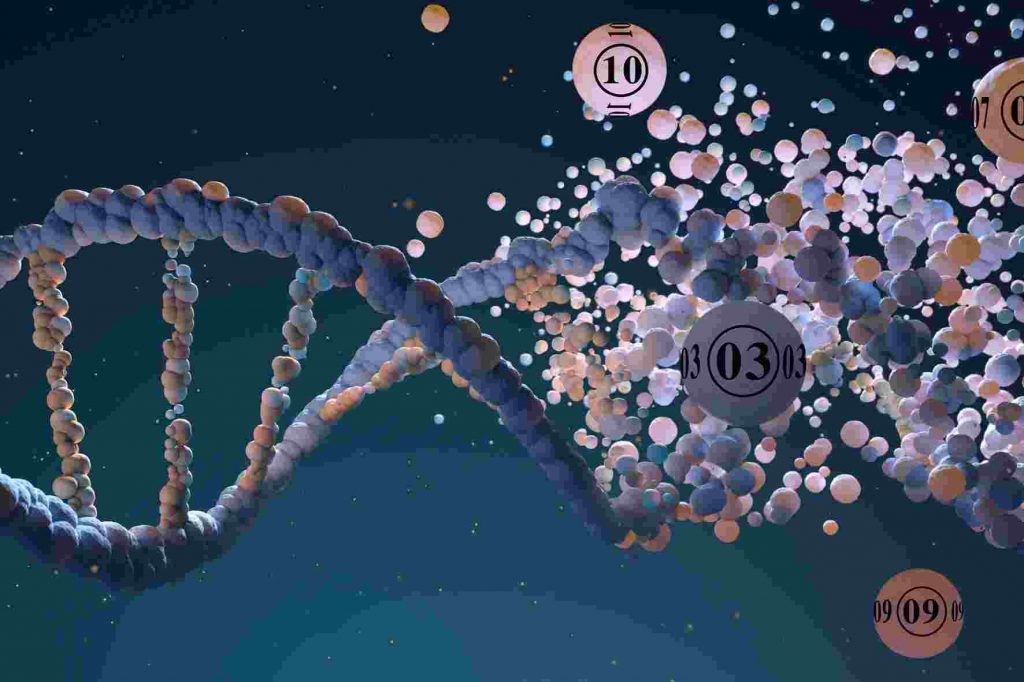
The DNA lottery!
Do you have the confidence gene?![]()
Neuroscientists have been examining genetic factors behind adverse psychological traits such as depression, bipolar disorder and anxiety for decades.
That’s old news now.
More interestingly they are now researching the genes that guide positive character qualities like intelligence, optimism and the one I want to examine today, confidence.
Scientists now believe that your genes may influence your confidence, optimism and self-esteem levels anywhere from 25% to 50%
That’s a big deal!
So are your confidence levels a DNA lottery?

Well yes but thankfully it’s OK to cheat.
We are all born with many innate characteristics. Some of which have been linked to our DNA.
Research tells us that we are born either an introvert or an extrovert.
Yes, that’s right, it’s not our fault if we don’t want to go to yet another cocktail party or networking event!
As the worlds’ knowledge of confidence grows, researchers have discovered there is a combination of genes which influence our propensity towards anxiety or confidence.
It’s early days, but so far, scientists have uncovered three confidence-inducing genes.
-
The first I’d like to look at has the catchy name of SLC6A4.
This is the gene that controls the levels of serotonin in our bodies; it’s the serotonin transporter gene.
Serotonin has a significant impact on our mood and is critical to confidence. It’s the hormone related to feelings of well being and happiness. Let’s face it; it’s hard to feel confident when you don’t feel safe and relaxed.
SLC6A4 comes in several flavours, and they don’t play fair. Depending on which one you have inherited will determine how optimistic, happy and confident you are.
-
The next sexy gene to examine is OXTR.
This gene controls our oxytocin levels. Most people know oxytocin as the ‘cuddle’ hormone. This is because it is released when we snuggle, and when it floods our bodies, we feel connected and trusting to those around us.
Oxytocin is heavily tied to optimism, self-esteem and mastery, all of which are a crucial part of confidence.
-
Last but not least is the COMT gene.
This is colloquially known as the ‘Worrier/Warrior’ gene, and it regulates the levels of dopamine in our bodies. Dopamine is the hormone linked with motivation and high performance but also to stress and depression.
This gene comes in two variants.
-
- The GG COMT or the ‘warrior’ variant makes you more resilient, less anxious leading to more confidence. Many risk-takers or adrenaline junkies carry this mutation.
-
- The AA ‘worrier’ alternative leads to more anxiety and stress leading to less confidence. If you love skydiving, you probably don’t have this version.
Imagine having all three of these genes working in your favour.
It now makes so much more sense that some people seem more naturally at ease and to move through life with less friction.

Should we be blaming our parents for our social behaviours?
Yes…(but only partly!)
OK, so unless the DNA lottery is rigged in your favour, it has a lot to answer for.
The scientific journals will tell us that some parts of our DNA can’t be altered, like hair colour. My stylist will tell you differently.
Just a little aside and insight into my brain, my favourite hereditary condition is the beautifully named ACHOO Syndrome.
The ACHOO syndrome, (autosomal dominant compelling heliopthalmic outburst syndrome), is a condition where a person will involuntarily sneeze after seeing a bright light or moves abruptly from darkness into a bright area or sunlight.
Sorry, this one is a keeper, my stylist cant change that one.
So how about our DNA for confidence and self-esteem?
Well as we have seen, some people get a free pass on this, but it’s not all doom and gloom for the rest of us.
This is where the superhero powers of epigenetics come into play.
Epigenetics is the study of how your actions and environment can change the way your genes work; they can change how your body expresses a DNA sequence. It’s the nature versus nurture idea.
The good news about this is that you don’t have to always settle with what your parents gave you. Sometimes epigenetics can be fixed to work in your favour.

It’s a bit like exchanging that awful Christmas sweater your parents bought you, for a beautiful cashmere one instead.
You still have the sweater, only this time you have had some say in how it looks and feels.
Ironically even though your parents gave you the ugly sweater (genes) they are the first opportunity life gives you to exchange it.
When a genetically shy or anxious child is brought up in an emotionally secure, calm and nurturing environment, they can grow into a confident adult who has no idea that they even have the shy gene. In fact, research shows that they can be even more resilient than a child born with the cashmere sweater genes.
Don’t worry; having the perfect parents isn’t the only way you can manipulate your optimism and confidence; you can take control of that yourself. It does take work, though.
There is one good form of plastic in the world today.
If you got the ugly sweater gene and your parents didn’t upgrade it for you, you will need to do the work yourself.
Brain plasticity is all about changing the way your mind thinks, works and responds to life and its challenges.
Having this ability enables you to re-wire your brain and make it work in your favour. In effect, you become the electrician for your mind and create a new circuit of confidence.
Wow, that’s powerful. Even typing that feels liberating.
There are so many ways to do this; they all take time and dedication but image the results, a life of the lottery winner without even having a ticket.
I’m pretty sure that I was born with the shy gene and my sister got the extrovert one. My earliest memories are of feeling like an outsider, not belonging and too scared to voice my opinion.
My sister was louder, braver and more outspoken.

Same parents, same influences, totally different kids!
My parents were good people, but I grew up in the ‘seen and not heard’ era for childrearing so no chance of the ‘cashmere sweater’ for me.
Thank goodness for neuroplasticity!
I have worked hard on myself, evolving from a shy person full of self-doubt to feeling optimistic about my future, my abilities and my self-worth. That doesn’t happen overnight.
It’s also a work in progress; there is plenty of upkeep required to keep my new superpowers. It’s worth every effort. I love this newfound level of confidence.
If you didn’t win the DNA lottery for confidence, then that’s OK.
If all this talk about neuroscience has whet your appetite for some more fun, head to this page for some silliness.


